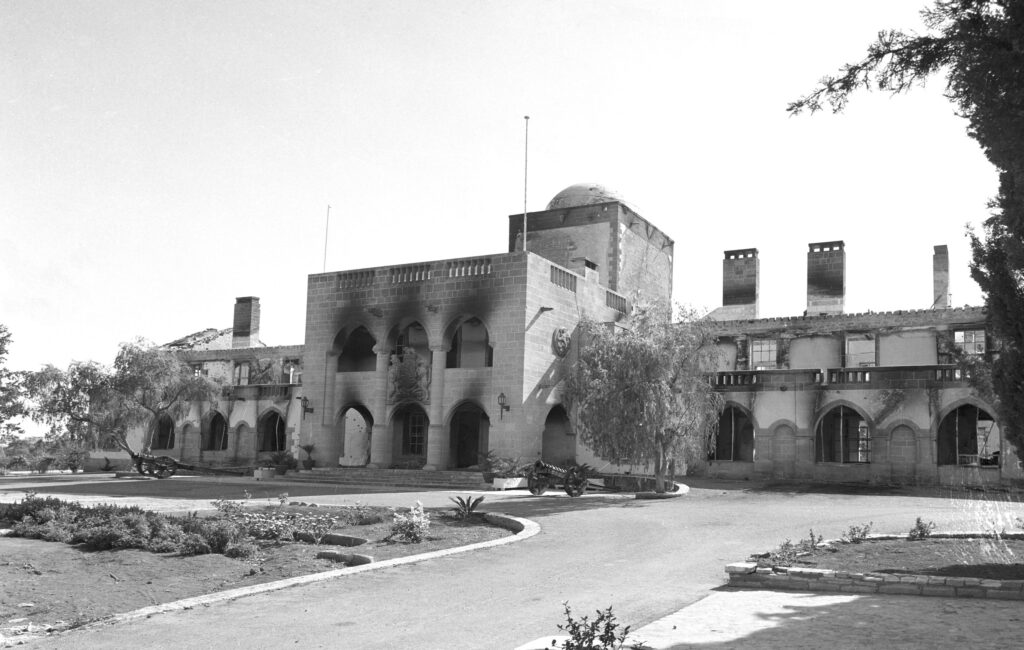On the occasion of the 51st anniversary of the junta-led coup of 15 July 1974 and the Turkish invasion of 20 July, historian Petros Papapolyviou was asked by the Cyprus News Agency and its journalist, Evi Andreou, whether the coup and the Turkish invasion could have been avoided. His response is quoted below:
“Asked by CNA whether the coup and the invasion could have been avoided, Mr Papapolyviou noted that ‘it is universally accepted that the two main aspects of the Cypriot tragedy of 1974—the coup of 15 July and the Turkish invasion of July–August—are events that violate international law and democratic institutions, and they should never have occurred.’
‘Now, as for the purely hypothetical—unfortunately, by now—question of whether they could have been avoided, I believe the answer is clearly affirmative for both,’ he added.
With regard to the coup, he stated, “It could have been avoided if, first and foremost, those who planned it—the junta leadership in Greece (D. Ioannidis, F. Gizikis, Gr. Bonanos, A. Androutsopoulos)—possessed the most basic sense of logic and even the slightest awareness of reality and their responsibilities towards Hellenism in Cyprus and the oath they so brutally violated. If they had had this, they would have realised the scale of the crime they ordered to be carried out, without serious consideration, on the morning of 15 July 1974.”
Beyond that point, he added, “there is an ongoing debate about the readiness of the authorities of the Republic of Cyprus to prevent the coup.”
“Many of Archbishop Makarios’ associates at the time attribute to him a certain hesitation in taking decisive measures to avert the possibility of a coup—for example, by arresting and expelling the Greek officers, whose transfer from Cyprus he had requested in his well-known letter to Gizikis before 20 July 1974,” he said.
Mr Papapolyviou noted that such an action might now seem simple and, given the events that followed, entirely justified, “yet it would have been an extremely extreme measure, even considering the tensions in Athens–Nicosia relations, which had peaked during the summer of 1974.”
“By general admission,” Mr Papapolyviou continued, “while Makarios had repeatedly warned about where the undermining of his authority by the colonels’ junta and the armed actions of EOKA B would lead, it seems he believed that the Ioannidis dictatorship would not go so far as to stage a coup against him—or if it dared to do so, it would not succeed.”
“Unfortunately, he credited the leadership of the Ioannidis junta with reason and a basic sense of patriotism, which it turned out they did not possess,” he said, noting that “it is telling that even the officers tasked with executing the coup in Cyprus (Georgitsis and Kompokis) had, just days before 15 July, expressed their concerns to Athens regarding the Turkish stance and possible reaction.”
However, Mr Papapolyviou pointed out that General Bonanos, who had been Chief of the Armed Forces since November 1973, reassured them that there was no danger and ordered them to proceed with carrying out the coup.
On the Turkish invasion
Regarding the Turkish invasion, Mr Papapolyviou stated:
“Anyone who speaks with the officers, soldiers, and others who fought to defend the integrity of the Republic of Cyprus in July–August 1974 against the foreign military assault is left with the conviction that ‘everything was betrayed’.”
“That conviction,” he added, “reflects and summarises all their experiences and observations of the stance and handling by the leadership of the National Guard General Staff (GEEF) in the days leading up to and during the first hours of the Turkish invasion.”
He noted that the defence plans were abandoned and not followed. Meanwhile, “from Athens, the orders received during those crucial early hours were to ‘exercise restraint’, the promised support from Greece—in submarines and aircraft—never materialised, and the natural leader of the GEEF, General Ntenisis, was not at his post, having been deliberately summoned to Athens in the days before the coup.”
In addition, he pointed out that “the legitimate President of the Republic had been overthrown since 15 July; many of the National Guard battalions had been exhausted, right up until the night of 19 July 1974, pursuing and eliminating dissenters; scenes of chaos and disintegration were recorded at many points along the front, a result of the confusion that reigned within the utterly incompetent coup leadership of the GEEF.”
“Had all these things not occurred,” Mr Papapolyviou stated, “then yes, clearly the Turkish invasion could have been prevented—and even repelled—since a defender, when properly prepared and fortified, holds the advantage over an enemy attempting an amphibious landing.”
He also referred to another key factor: according to officers of the Hellenic Air Force, “who awaited in vain the final order for deployment to Cyprus from Crete on 22 July 1974, to destroy the Turkish beachhead near Kyrenia, their arrival on the island with Phantom fighter jets would have completely overturned the gains made by the invading forces up to that point.”
However, as Mr Papapolyviou noted, those Greek warplanes were never ordered to take off for Cyprus.
A final word on accountability and historical truth
In conclusion, Mr Papapolyviou stressed that “we must not forget one more important point, even in this very brief summary.” Namely, that “both the first, but especially the second phase of the Turkish invasion and its consequences—now for fifty-one years—thoroughly refute as utterly baseless and unjustified the Turkish claims that the invasion was supposedly launched to ‘restore constitutional order’ in Cyprus.”
From this perspective, he noted, “the international community—and especially the Great Powers, including the United States, which was primarily concerned with preventing a Greco-Turkish war, and the United Kingdom, a guarantor of Cypriot independence since 1960—should have done far more than what they failed to do to prevent both the coup and the Turkish invasion.”

Also read: 51 years since the treacherous coup of 15 July 1974
Source: papapolyviou.com


